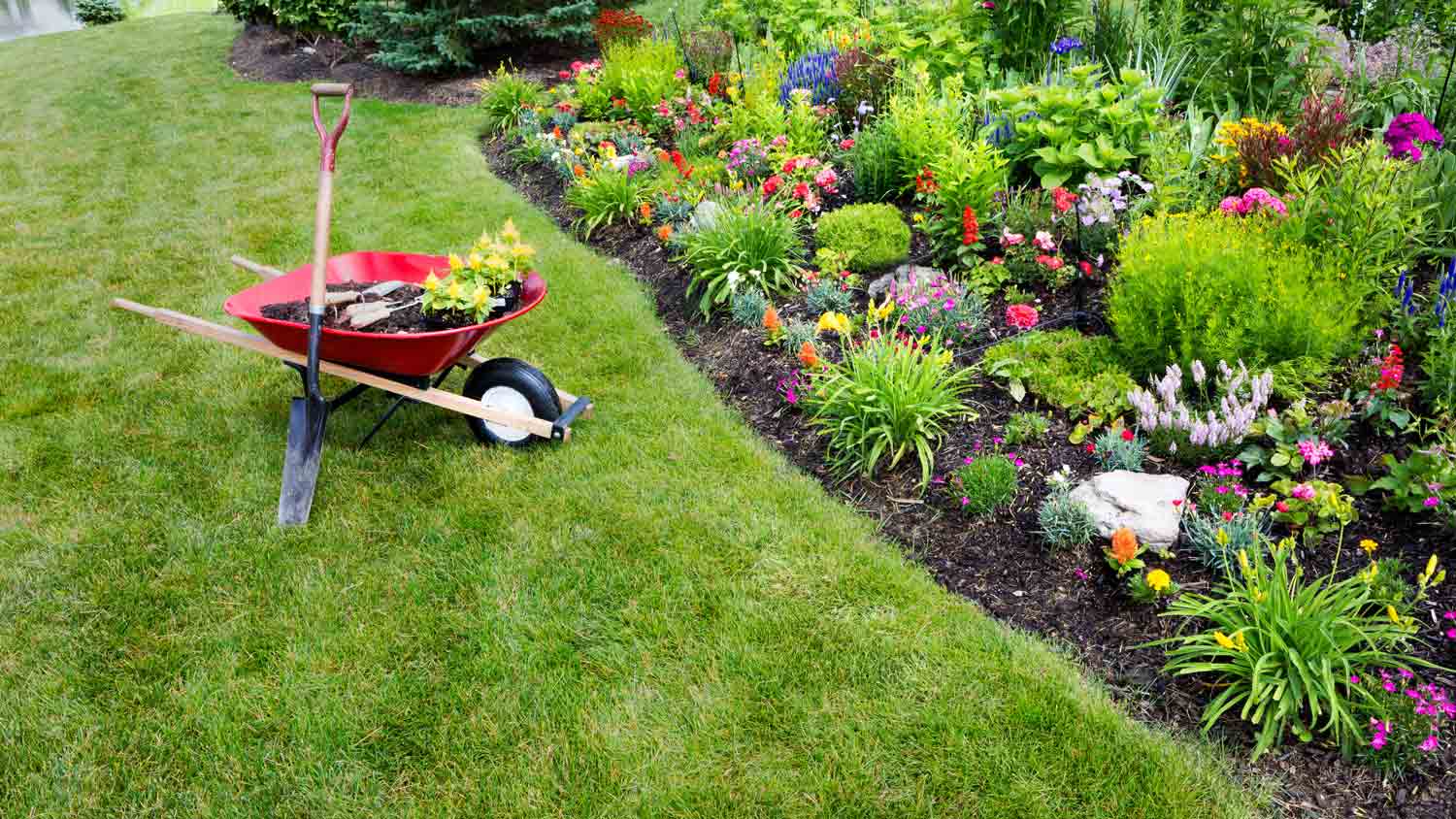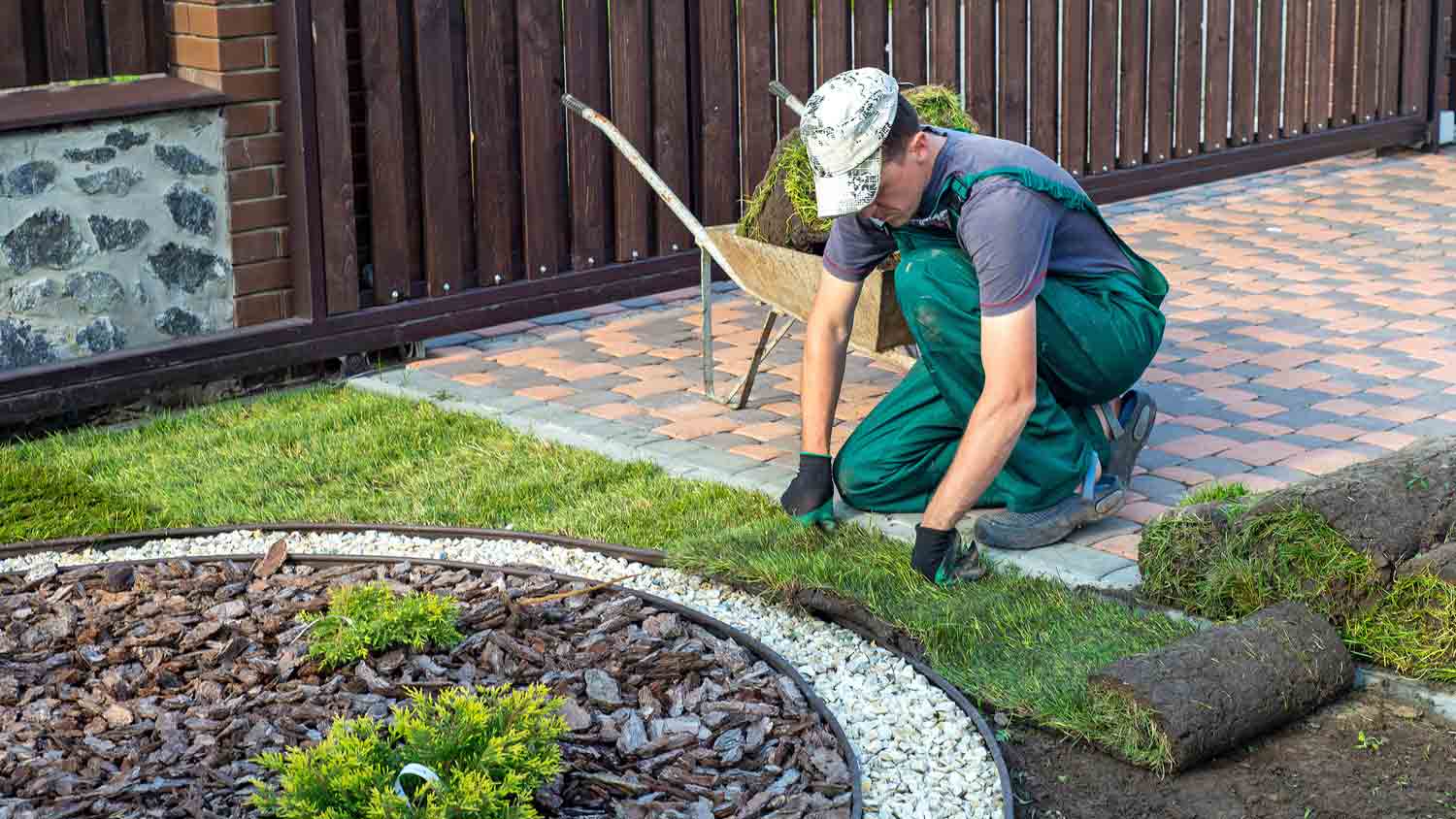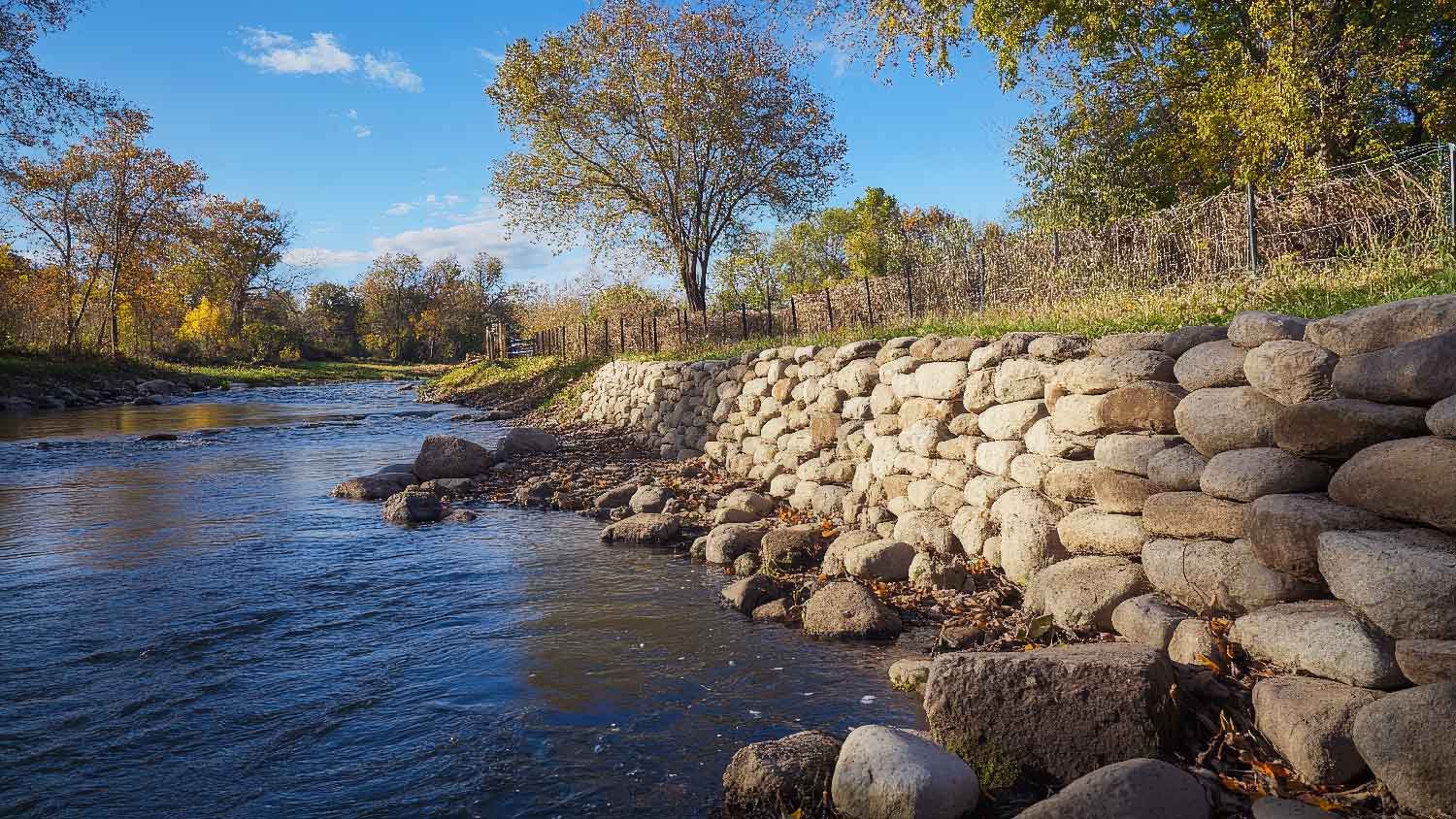
A landscape designer can elevate your outdoor space and bring your vision to life. Use this landscape design cost guide to budget for your next project.
Timing your landscaping project is easier said than done


Landscaping projects can take as little as two days and as long as six weeks.
Project timelines are affected by the job scope, materials used, types of features, and time of year.
Larger landscaping projects have a longer design phase and take more time to install.
If you want a full backyard makeover in time for your family’s annual summer barbecue, getting the timing right is critical. Landscaping projects can take anywhere from a few days to six weeks or more, depending on the job’s scope and details. Learn what factors affect how long landscaping takes so you can plan to get the project done on schedule.


Landscaping can be a quick and easy job that can be completed in a day or two, or it can be a much more involved and complex project that can take six weeks or more from start to finish. Figuring out how long your landscaping will take hinges on what the project involves.
Smaller jobs like building and planting new plant beds, mulching existing beds, or adding a fire pit won’t take long—these jobs can often be finished in a day or two. Bigger projects like adding a patio and walkways, installing water features, building a retaining wall, landscaping a new home, or completely redoing your landscaping can stretch the job into a month or more.
Bigger jobs that require excavation and construction require specialized equipment, and you may need a permit for landscaping, which will add to your timeline. More involved landscaping also takes longer to design, so the time from start to finish will be much longer than smaller, more routine projects.
Adding water features, outdoor kitchens, or landscape lighting involves running utility lines for electricity, plumbing, and gas, which takes extra time and expertise. Hardscape features like patios, walkways, pergolas, and retaining walls are time- and labor-intensive to construct and can add weeks to your timeline.
If you have your heart set on unique fixtures, hard-to-source stones, or plants that need to be specially ordered, you might spend a little time waiting for your materials to arrive. Custom-built fixtures may have non-standard components or parts that need to be specially fabricated, affecting the project’s schedule.
Spring and fall are usually the best time of year to landscape since you aren’t battling extreme weather. However, those are also busy seasons for landscapers, so you may have to wait for your contractor to have room in their schedule or pay more due to the increased demand.

Depending on the size and scope of the job, some parts of the process may take longer than others. The actual hands-on landscape installation may be relatively quick, but it’s important to know what kind of time investment you need before the project gets to that point.
You and your landscape designer will plan the project during the design stage. This is when you’ll figure out what features you want and where you want them to go. Your landscape designer will guide you through what’s feasible and what will work best for your yard.
After the landscape is designed, you have some decisions to make. Here’s where you’ll pick materials, select plants, and narrow down all the little details that will go into the finished project.
Once everything is designed and decided, it’s time to break ground. How long the installation process takes depends on the project, so ask your contractor for an estimate of the timeline.
Make sure to plan your landscaping design before you break ground. Knowing which materials you need, what services you have to hire, and how much your budget is can save you money throughout your landscaping project.
Homeowners can tackle many landscaping projects on their own but may want to call in the pros for structural or utility work that may need to meet local codes. Hiring a local landscaper for your backyard project can make the job go much faster—a team of experienced professionals can tackle a big project in much less time than you can by yourself.
From average costs to expert advice, get all the answers you need to get your job done.

A landscape designer can elevate your outdoor space and bring your vision to life. Use this landscape design cost guide to budget for your next project.

Leveling your yard can help with drainage and prevent damage to your home. Learn the cost to level a yard in Columbus, OH, and what factors can affect the price.

From your flower beds to your walkway, river rocks make a classic addition to your landscape. Learn about the cost to install river rock to set a proper budget.

Get a clear breakdown of geotechnical report costs, including average prices, cost factors, and tips to help homeowners budget for their project.

Looking to build flood and erosion resilience on your land? Review this guide for riprap costs that will stabilize your shorefront property.

DIYing thorn bush removal is possible. This guide offers a list of necessary materials and a step-by-step walkthrough to help you remove thorn bushes.